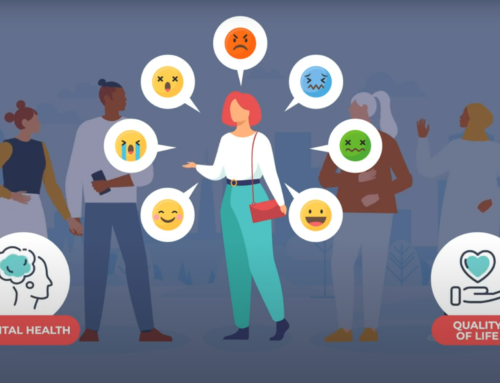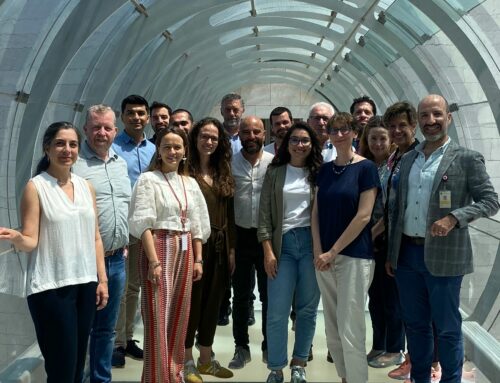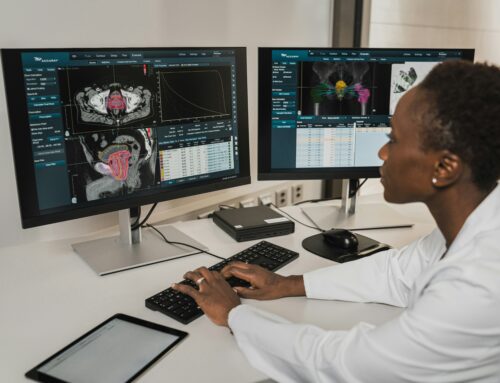The Cancer Survivorship – AI for Well-being cluster brings together 11 EU-funded projects working in Artificial Intelligence for healthcare and well-being. Primarily, the Cluster focuses in post-cancer treatment space with a collective aim to cross-fertilise. This brings to transcend individual project experiences for the wider good and outcome of their individual projects. The Cluster started in October 2020 and it is evolving. Presently, it is flourishing with members collectively working on related issues spanning topics around clinical, technical and business. The Cluster fosters cooperation for the ultimate benefit of the patients, care-givers and of course, medical professionals involved in the care team undertaking.
eHealth for Cancer: CS_AIW Cluster members experiences
AI has much capability for eHealth. In the cancer survivorship space, it could enable secure access to and exchange of clinical information and health data between care teams. Indeed, this would facilitate shared decision-making to help with the diagnosis of improved patient treatment outcomes. In time and in layman terms, it will become part of the norm in the world of tomorrow. The Cluster has followed an ethos for intelligence engagement, sharing knowledge, experiences and understanding. Moreover, Cluster members pushed for the development of better practice guides for the common good of all members. Undoubtedly, the Cluster’s evolution targets at opening up engagement with more stakeholders for the wider good of patient mental health and the emergence of smart technology onto the market.

Figure 1 – Members of the Cancer Survivorship – AI for Well Being Cluster
Cancer survivors know the full meaning of team effort. A team of oncologists, radiotherapists, psychologists and caregivers supports patients during the dreaded journey when cancer is detected and treatment is necessary. The road to recovery can be long and arduous. Survivors know the true value and importance of mental strength during the treatment process and throughout the entire recovery stage. As part of the Cluster activities engagement with patients, healthcare providers and researchers are at the forefront of the work.
Interestingly, the Cluster member projects represent different views and understandings. In fact, different perspectives help with requirements, implementation, as well as the verification and validation process of the individual projects. The Cluster activities greatly contribute to ensuring that the projects’ technical outputs are in line with the needs of those involved in the process of post-cancer patient treatment space. For instance, direct engagement with business angels helped the Cluster to better pin-point the needs of market acceptance. This way, the technically strong projects are better fit for purpose from a business perspective.
CS_AIW Cluster resources on eHealth for Cancer
Although the Cluster is evolving, our motto ‘We don’t work in silo’ remains steadfast! The work of the Cluster prides itself for its highly user-centric manner. Since its formation, we believe that the Cluster has made and will continue to contribute to the Quality of Life objective set in the European Cancer Mission directive. The Commission has set an overall goal of improving the lives of more than 3 million people by 2030. This objective is being achieved through prevention and cure. Furthermore, the EU Cancer Mission extends its reach to those affected by cancer, including their families, to live longer and better. The Mission on Cancer is a major component of the EU’s investment in cancer research and innovation. It is crucial for a successful delivery of the Cancer Plan and many of its key actions, as part of a strong European Health Union.
Led by the University of Granada, the Cluster recently issued a White Paper, which gathers a number of recommendations including:
- Time and effort required to monitor data and optimise workflows must not be underestimated;
- Open-source tools that adhere to standards for data annotation and interoperability should be a priority;
- Not enough attention invested in data standardisation, pre-processing, curation, integration and allocation of the necessary expertise and resources within the project.

Figure 2 – Contributors from the Cluster for the announcement of the White Paper.
Presently, the Cluster is working in the development of a Better Practice Guide that is compliant to standards and supports interoperability. In addition, the Cluster is aiming to develop a new patient association group, within its remit. The establishment of the group will provide better support for the work of Cluster. Indeed, it would give a richer understanding of patients’ needs, as new innovations debut right from the beginning of a new project. In fact, this too is in line with the concept and development of the UNCAN.eu. The UNCAN.eu is a European data hub on cancer which will help researchers’ analyses of combined research, health and other relevant data. An unprecedented effort, the initiative will boost the robustness of data and creating new research opportunities.
EU and CS_AIW Cluster together to battle Cancer
The Mission itself focuses on four specific objectives:
- provide a better understanding of cancer;
- increase prevention, including by screening and early detection;
- improve diagnosis and treatment;
- increase the Quality of Life for patients and their families.
The Cancer Mission facilitates early involvement of the Expert Group on Public Health. In turn, this helped with the shaping of the updated Council Recommendation on cancer screening. In fact, screening extended to prostate, lung, and gastric cancer, beyond breast, colorectal and cervical cancer. The Cluster focuses on the Quality-of-Life objective, and through its ongoing evolution, aims to work closer with the European Commission. In this way, it makes a recognised contribution for the fulfilment of targets by 2030.
To know more about the Cluster or to download a copy of the White Paper, visit www.cs-aiw.eu or direct your query to contact@tfcengage.com.
Authors: Bernice Clarke, Pantelis Papasavvas and Tom Flynn (TFC Research and Innovation Limited)




